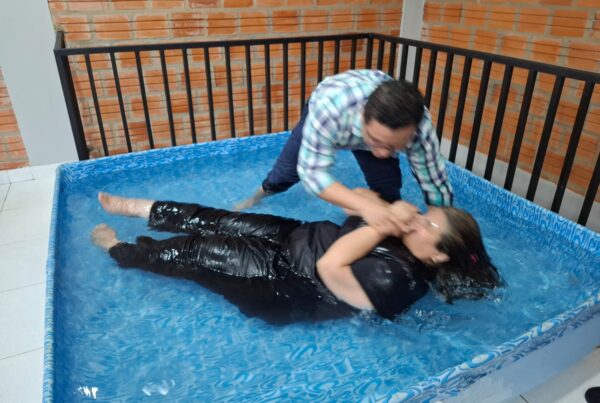What’s the most important tool in your people-helping tool belt? In a world of increasing therapeutic models and methods, ever more tools are readily available. But the most important tool we possess is good theology. When it comes to helping image-bearers of God endure suffering and overcome sin, there is no substitute for an increasing knowledge of the gospel.
I’m thankful for Acts 29’s commitment to theological clarity for ecclesiological health. The first of Acts 29’s eleven Distinctives reminds us of the importance of the gospel as our primary tool for helping the hurting:
“This gospel is not only the means by which people are saved but also the truth and power by which people are sanctified; it is the truth of the gospel that enables us to genuinely and joyfully do what is pleasing to God and to grow in progressive conformity to the image of Christ.”
The theological tributaries that flow out of the river of the gospel are the waters we must help people navigate if we want to be effective pastors and counselors.
Spiritual Spidey Senses
Here’s an example of how the gospel plays out in the counseling room. Let’s say I’m meeting with Tina, who is wrestling with excessive guilt. As I listen to Tina explain her struggle, I hear her talk about her inability to forgive herself. She believes if she could just do a better job of extending forgiveness to herself, she wouldn’t have to deal with the overbearing weight of guilt that drags her down day after day.
As Tina talks, the hairs on my arm stand up. My spiritual Spidey sense goes into overdrive. Tina’s problem isn’t that she does a poor job of forgiving herself; it’s that she’s trying to forgive herself. She’s trapped on the hamster wheel of self-forgiveness. Around and around she goes, day after day, with no hope of experiencing the peace of God that comes only through his forgiving grace. While heartfelt, Tina’s attempts to forgive herself are antithetical to the gospel. Tina has bad theology—no wonder her guilt feels oppressive. When it comes to helping image-bearers of God endure suffering and overcome sin, there is no substitute for an increasing knowledge of the gospel. Condividi il Tweet
One of the most basic tenets of biblical forgiveness is that it comes from God, not inside us. We can’t forgive ourselves because we don’t have the authority to do so. Responding to the Pharisees’ doubt about his authority to forgive sins, Jesus said, “Why do you question in your hearts? Which is easier, to say, ‘Your sins are forgiven you,’ or to say, ‘rise and walk’? But that you may know that the Son of Man has authority on earth to forgive sins . . .” (Luke 5:22–24). Many people share Tina’s struggle.
Underdeveloped, inaccurate, or absent theology is one of the biggest barriers to spiritual health. The best counselors are, first and foremost, theologically astute. The tools and micro-skills that make them effective counselors flow directly from their healthy theological convictions.
The Destructive Philosophy of Self-Prioritization
Self-forgiveness isn’t the only destructive philosophy prevalent in our culture. We’re inundated with messages that encourage us to prioritize “self” above all else. Our culture tells us that if we want to be healthy, we must learn to forgive ourselves, be gracious to ourselves, and love ourselves. Satan disguises himself as an angel of light (2 Cor. 11:14), so we should not be surprised that his lies often present as attractive truths.
If you’re hard on yourself, wouldn’t it make sense to learn to be more gracious to yourself? You certainly can’t love other people well if you don’t love yourself well, right? How could you possibly care for your children if you neglect your own needs? The fallacy of these questions and others like them lies in their self-focus. Instead of looking to God for comfort, strength, and endurance, our culture tells us to look inward for what we need.
Knowing God and Helping Others
Colossians warns us about this kind of thinking: “See to it that no one takes you captive by philosophy and empty deceit, according to human tradition, according to the elemental spirits of the world, and not according to Christ” (Col. 2:8). Jesus alone should captivate our minds, and Jesus alone can provide what we (and those we counsel) need.
If we’re growing in our knowledge of Jesus and his Word, we’re equipped to “walk in a manner worthy of the Lord, fully pleasing him: bearing fruit in every good work and increasing in the knowledge of God” (Col. 1:10). Not only that, we’re equipped to help our hurting brothers and sisters do the same.
Continue to grow in your understanding of God and his Word. If you’re a pastor, you already know this is what you need for good preaching—but it’s the best way to provide effective counsel, too.
In a world of increasing therapeutic models and methods, ever more tools are readily available. But the most important tool we possess is good theology. Condividi il TweetGood theology can detect bad theology. As you listen, ask yourself if what you hear is consistent with the gospel. You might not always be able to pinpoint how or why what you’re hearing is off—keep listening. Keep asking clarifying questions. Trust the Holy Spirit to give discernment to address the issues. Finally, administer a steady diet of the gospel to those you counsel. May the power of God’s Word illuminate the lies of culture and refresh the hearts of hurting saints.










